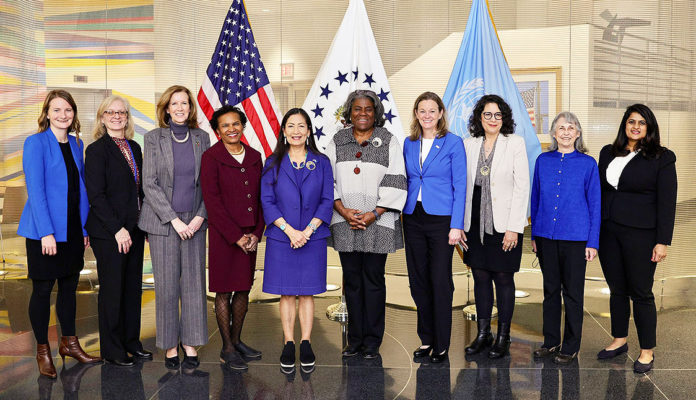NEW YORK, NY – On World Water Day yesterday, Secretary of the Interior Deb Haaland delivered the national statement on behalf of the United States at the United Nations 2023 Water Conference in New York City. Secretary Haaland and Ambassador Linda Thomas-Greenfield, Representative of the United States to the United Nations, served as the Heads of Delegation to the conference.
In the statement, Secretary Haaland emphasized the Biden-Harris administration’s all-of-government approach to effectively secure equitable, climate-resilient water and sanitation at home and abroad. This work is guided by the White House Action Plan on Global Security and the U.S. Global Water Strategy, both of which prioritize strengthening local and global systems to meet the needs of underserved populations.
The Department of the Interior is providing over $12 billion for water infrastructure projects over five years through funding from President Biden’s Bipartisan Infrastructure Law and Inflation Reduction Act to advance drought resilience and expand access to clean, reliable water for families, farmers and wildlife. These projects are boosting innovative water purification and storage projects, supporting tribal dams and sanitation systems, and restoring watersheds and aquatic habitats. The Department has also committed $2.5 billion over five years to fulfill Indian Water Rights Settlements, which will provide tribes with long-sought resources to improve water resources management through settlements approved by the U.S. Congress.
The Department also works with the Department of State, USAID, and other federal agencies to support global water security, providing technical assistance on a range of water resource issues through the Bureau of Reclamation, U.S. Geological Survey, and other bureaus and offices.
Secretary Haaland participated in a number of side events at the conference. She spoke during an event focused on how new collaboration models can unlock and achieve water resiliency for the benefit of communities, ecosystems and economies. She also delivered remarks on Indigenous governance of shared waters and the importance of leveraging Indigenous-led conservation and co-stewardship partnerships as we work to address the climate and drought crises.














































